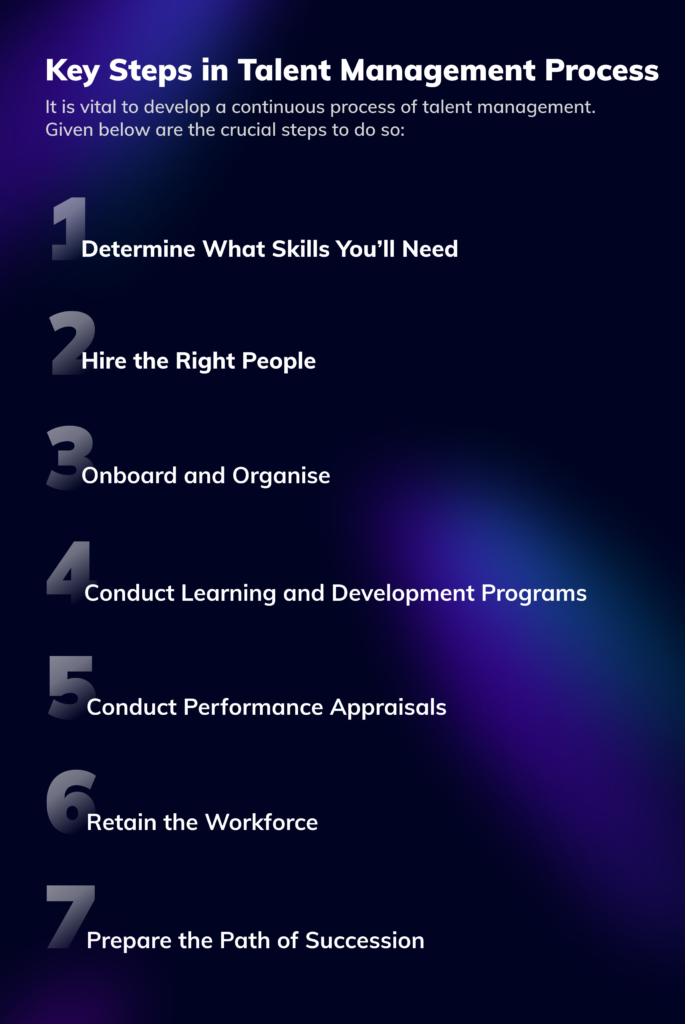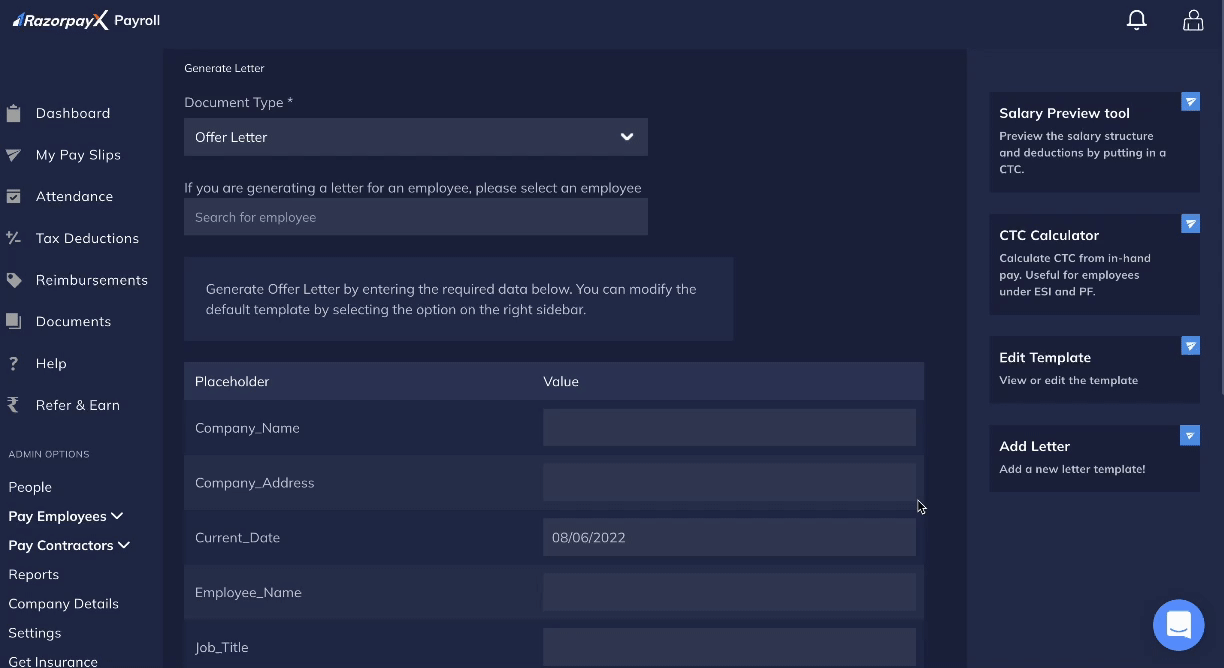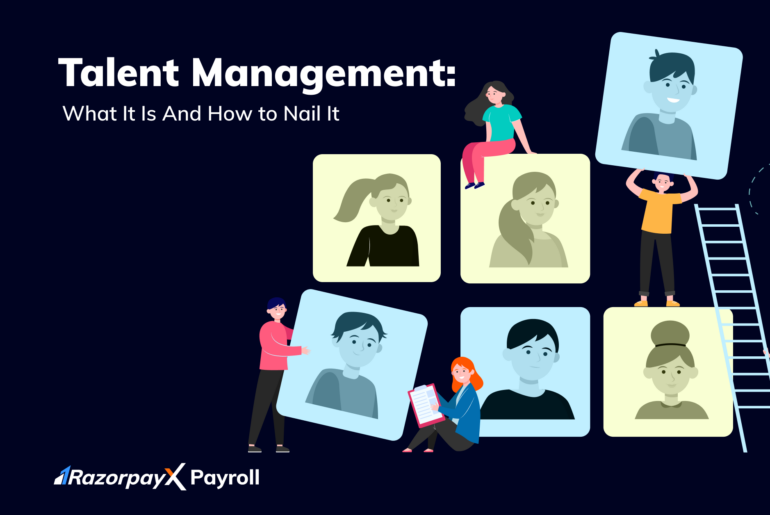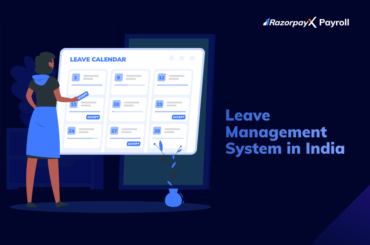Employees are any organisation’s greatest asset. Talent management helps employers get the most out of their employees.
A good talent management strategy brings immense long-term benefits for the company, because happy employees are proven to be more productive.
What exactly constitutes talent management? How can business owners implement talent management strategy in their Human Resource Management policies? Let’s take a look.
Table of Contents
What is Talent Management?
Talent management is the process of developing an effective strategy to onboard adept and dynamic employees, develop their skills and motivate them to improve their performances for overall business growth.
Talent management can mean aligning individual employee goals with larger business goals. For example, if a business goal is to increase revenue in the coming quarter, it can mean equipping the sales and marketing teams to increase targets or improve conversion rates.
It can also mean constantly checking in with the workforce to understand employee needs and fulfilling those needs.
The purview of talent management is vast – let’s understand exactly what talent management includes.
Components of Talent Management
The main goal of talent management is to equip and optimize employees so they can reach their full potential. Employers need to anticipate and fulfil employee needs and aspirations.
Talent management also means ensuring employees feel valued and supported in their growth, leading to increased engagement and higher performance. Here are a few policies and good practices employers can implement to ensure better talent management.
Employee-employer fit: Talent management is important right from the hiring stage. With detailed, accurate job descriptions and full transparency on the role and company policies, HR managers can ensure that the perfect candidate is hired for the role.
If the employee is put into a role he is not suitable for, productivity takes a significant hit, and valuable time and resources will have been spent on a misplacement.
Employee career growth: It is the responsibility of the employer to ensure that employees are constantly evolving in their careers. This can mean equipping employees with L&D opportunities, or upskilling and upgrading employees as required.
Employers should also be fully transparent with employees on possible promotions, or leadership roles.
Reward and recognition: Good performance should always be recognised and excellent performance must be rewarded. This goes a long way in boosting employee morale and motivation.
Talent Management Process
 1. Determine what skills you need
1. Determine what skills you need
First, you must determine the skills needed for growth and development in your organisation. Then, consider whether it is possible to teach those skills to current employees or if you should hire someone new.
2. Hire the right people
Direct advertisements on job sites and social media platforms are an effective way to invite applications. A screening process will follow this before hiring suitable candidates.
3. Onboard and organise
Providing an excellent orientation to new employees is essential as most employees decide whether to continue in the first few weeks. In addition, the HR department needs to organise their training schedules and ensure that the recently hired employees settle down with their job roles.
[Suggested Read: Employee Onboarding Process: Why it Matters And How Automation Helps]
4. Conduct learning and development programs
Teaching new skills is a crucial component of talent management. Therefore, companies should consider conducting courses and conferences and implementing a learning management system.
5. Conduct performance appraisals
Regularly evaluating the performances of employees can help prepare them for promotions. In addition, doing this would increase employee retention and save additional onboarding costs.
6. Retain the workforce
Regular employee engagement programs are essential to keep people happy in the workplace. It helps create a sense of connection with the organisation and motivates employees to stay longer at any company.
[Suggested Read: 6 Powerful Strategies to Improve Employee Engagement Quickly]
7. Prepare the path of succession
Motivating employees to perform their best and upskill is vital as it would prepare them for succession after a senior member leaves. Also, conducting exit interviews after someone resigns helps understand what went wrong and prevents repetition.
How to build an effective talent management strategy?
The critical components of a talent management strategy are planning, attracting, developing, retaining and transitioning. Below are the essential tips that will help one formulate an effective talent management strategy:
Know the Purpose of your Strategy
Businesses have different goals. So, it is crucial to know the purpose of the talent management strategy and what it seeks to achieve. Additionally, having a clear idea about how employees can contribute to a company’s goal will help achieve it faster.
Evaluate the Results
Defining the metrics and evaluating whether a talent management strategy is working is essential. For instance, one of the metrics could be how much time/years an employee stays at an organisation on average.
Allocate Tasks
Though most of the talent management responsibilities lie with the HR department, other employees of the organisation must be involved. For instance, executives taking up the responsibility of succession planning.
Communicate with Employees
Employees must clearly understand what the organisation expects from them and what their expectations are. HR managers need to understand the problems faced by employees that affect their productivity and communicate it to the respective head of departments and employers.
Talent management plays a crucial role in the success of a company. Though it is primarily the responsibility of the HR department, companies should not assume that just having HR managers will cover every aspect of talent management. Instead, an effective talent management strategy involves preparing business-specific goals to help employees develop skills and perform well for the business’s overall growth.
Manage talent and more with RazorpayX Payroll
When working in a startup or small company, a good amount of HR time is spent on tasks like payroll, leaving little to no time for strategic work like talent management. RazorpayX Payroll is an all-in-one payroll software that automates salary calculations and disbursals with just a few clicks.
- It helps with talent management, right from onboarding new employees to exit. It comes with easily customisable offer letter templates and tools like a CTC calculator and salary preview that help instantly calculate take-home salaries and CTC.

- The leave management system ensures hassle-free access to it online – from any device, at any time, facilitating a better employee experience.
- RazorpayX Payroll is integrated with Slack. So, employees can apply for leaves, and managers can approve them instantly from Slack.
- Furthermore, RazorpayX Payroll offers affordable group health insurance policies for teams as small as 2!
So, what are you waiting for? Sign up for RazorpayX Payroll today and Xperience the combined power of HR management and payroll system.
FAQs
What are the key components of talent management?
The main components of a talent management system are attracting, developing and retaining skilled and dynamic employees. Broadly speaking, it involves choosing the right people, giving them every tool to succeed and retaining them for a long period.
How does a talent management system help a company?
An effective talent management system helps improve diversity and inclusion in the workplace, facilitates better hiring decisions, improves onboarding, and develops employees' skills.





